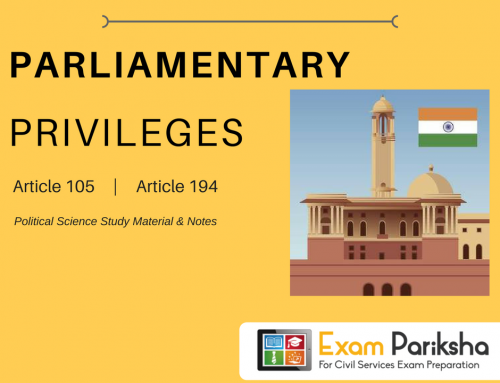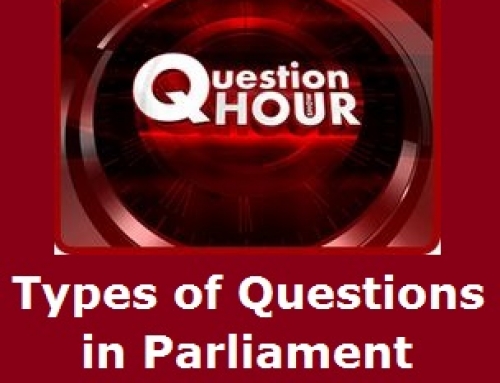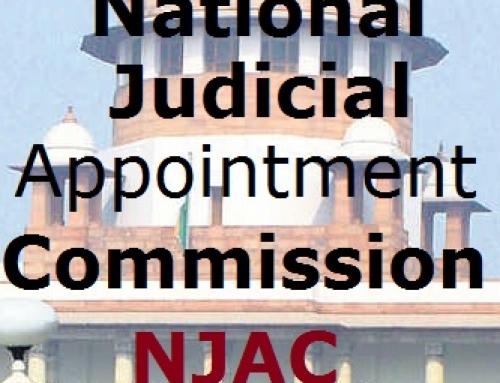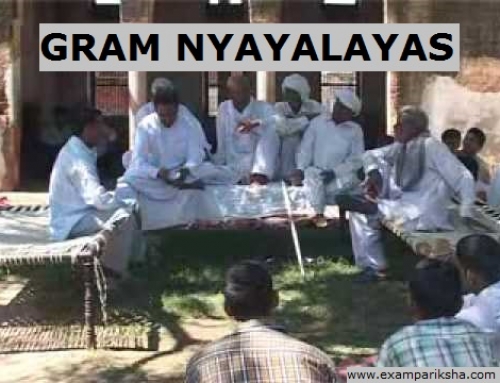The Constitution of India mentions that, there has to be a Governor for each State. If requirement arises, one person can be appointed Governor for even two or more States. Since the executive authority of every State is vested in the Governor of the State, he is a very important part of the State executive.
Appointment :
The Governor of a State is appointed by the President of India. It must be noted that there is no bar on re- appointment of a Governor, either in the same State or in other State.
Qualifications:
For becoming a Governor, an individual must have following qualifications:
1.He must be a citizen of India;
2.He should be at least 35 years;
3.He cannot hold any office of profit during the tenure.
But, if a person is a member of either of the House of the Parliament or the Legislature of any State is appointed as a Governor, he will cease to be a member of the Legislature or the Council of Ministers.
Tenure:
The Governor is appointed for a term of five years. However, he normally holds office during the pleasure of the President. He/she can resign before the expiry of the term or may be removed by the President earlier than completion of his term. It must be noted that, while appointing or removing the Governor, the President has to follow the advise of the Prime Minister .
Emoluments:
He/she is entitled to a rent-free residence which is usually called the Raj Bhawan. His/her emoluments, allowances and privileges are specified under the law. But, the emoluments and allowances of the Governor cannot be changed during his tenure.
Powers, Position and Role:
The powers and functions of the Governor are categorised under two heads namely,
- as the head of the State – Executive, legislative, financial as well as pardon powers.
- as the representative of the Union Government.
(A) Executive Powers:
- All the executive functions in the State are carried on in the name of the Governor.
- He/she appoints the Chief Minister and on his/her advice appoints the members of the Council of Ministers of the State.
- He/she allocates portfolios among the ministers on the advice of the Chief Minister .
- He/she appoints the Advocate- General , and also the Chairman and members of the State Public Service Commission on advice of the Chief Minister.
- He/she has the power to appoint judges of the courts, other than the High Court. according to procedures established under the law.
- He/she, is consulted by the President when the judges of the State High Court are appointed.
- While discharging all his/her functions as the Head of the Executive in the State, the Governor like the President, is advised by the Council of Ministers headed by the Chief Minister.
(B) Legislative Powers:
The legislative powers, like the executive powers are exercised by the State Council of Ministers, headed by the Chief Minister.
- The Governor summons and prorogues the State Legislature.
- He/she can dissolve the State Legislative Assembly on the recommendation of the Council of Ministers headed by the Chief Ministers .
- He/She may address the session of the State Legislative Assembly.
- He can send messages to either or both Houses.
- He/She may nominate one member of the Anglo Indian Community to the State Legislative Assembly, if he/she is satisfied that, the said community is not adequately represented.
- He/she nominates one-sixth members of the total strength of the Legislative Council if the Council exists in a State. Such nominated members are individuals possessing special knowledge in the field of literature, science, cooperative movement,social service as well.
- The assent of the Governor is necessary for a bill to become a law. In this regard, the Governor has the following options when he receives a bill for his consideration:
(a)He/she may give his assent to the bill, in which case the bill becomes a law;
(b)He/she can withheld the assent, in which case the bill fails to become a law;
(c)He/she can return the bill with his message to the State Legislature, if it passes the bill in its original shape again or in a modified form, the Governor has to give the assent to the bill;
(d)He/she can reserve the bill for the consideration of the President. - The Governor also has the power to issue ordinances when the State Legislature is not in session. But, the ordinance has to be placed before the State Legislature when it assembles again for the next session. Such ordinance ceases to be effective after six weeks. The Legislative Assembly is empowered to replace the ordinance by a law within the said period to continue it.
(C)Financial Powers:
- Money bill cannot be introduced in the State Legislative Assembly without the prior permission of the Governor.
- The annual and supplementary budgets are introduced in the Assembly in the name of the Governor.
- The Governor has the control over the State Contingency Fund, without his assent the fund cannot be drawn upon.
(D) Power of Pardon:
The Governor possesses the power to grant pardon, reprieve, respites or remission of punishment or to suspend, remit or commute the sentence of any person convicted by the Courts of any offence against any law relating to matters of the State.
(E) Discretionary Powers:
The executive, legislative, financial and judicial powers the Governor are exercised on aid and advise of the Council of Ministers, headed by the Chief Minister.
However, there are a few more powers which the Governor possesses as the representative of the Central or Union Government. These powers are known as discretionary powers.
Under special circumstance that the Governor can act without the advice of the Council of Ministers.This means, these powers of the Governor are exercised in his/her own discretion. They are mentioned below:
- When in the opinion of the Governor there is breakdown of the constitutional machinery in the State. In that case, the Governor can report the situation to the President for imposition of the President’s Rule in that State. In case the Governor’s report is accepted by the President, and he/she proclaims emergency under Article 356, the State Council of Ministers stands removed,and the State Legislative
Assembly is either dissolved or suspended. During such emergency, the Governor rules on behalf of the President as his agent. - When the Governor may reserve a bill for the consideration of the President.
Since the Governor exercises these powers on his own, they are called the discretionary power of the Governor. The discretionary powers of the Governor were introduced in the Constitution for extraordinary and emergency situations. But, in practice, these powers have also been abused in certain situations. This has led to tension between Union and State relations.





